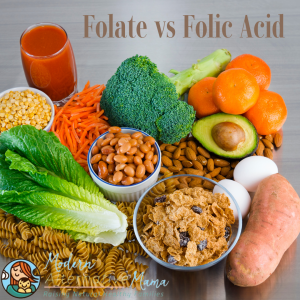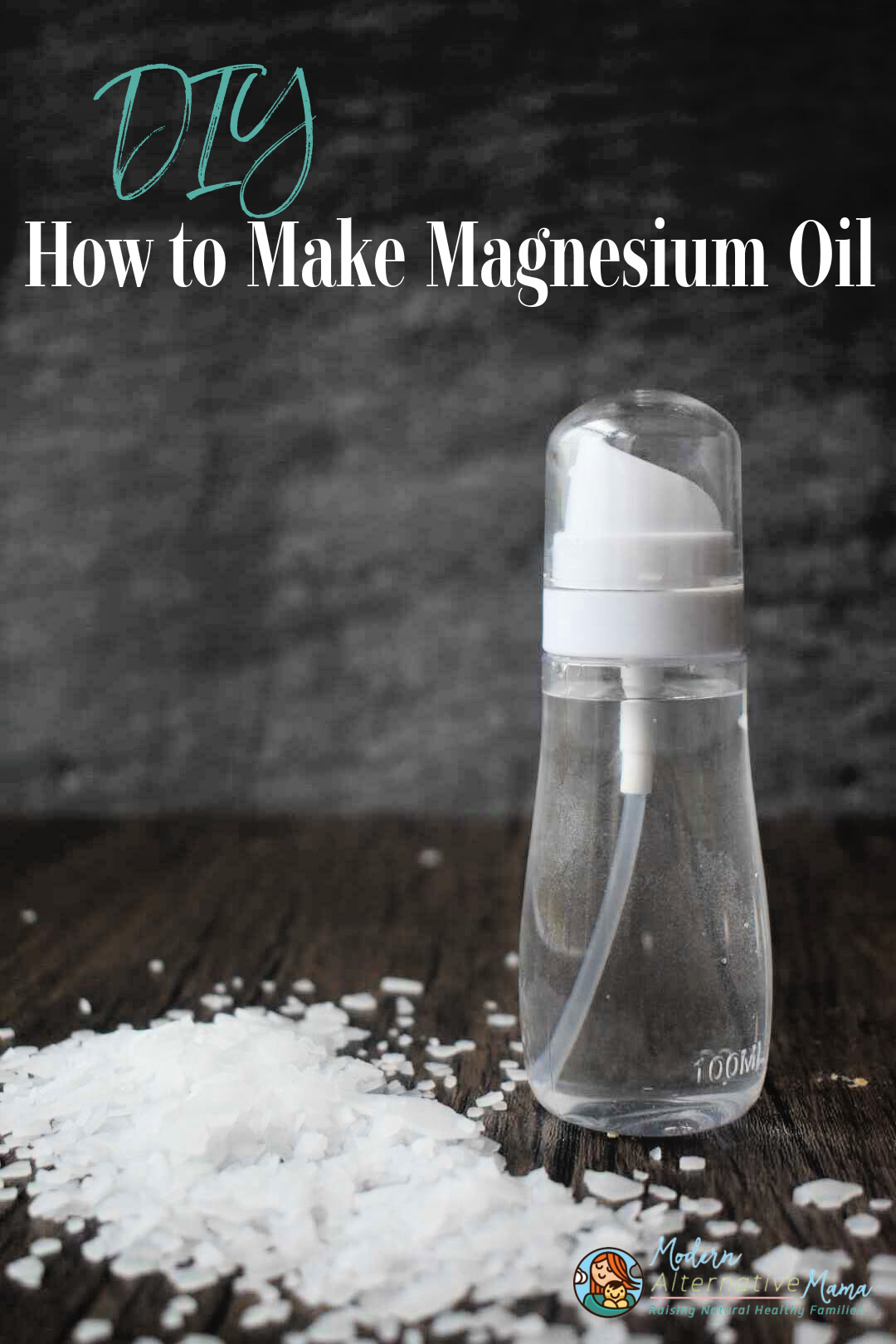By Sarah Dillingham and Rustina, Contributing Writers
Growing a sweet little baby inside of you is an amazing adventure, but making sure that the little one has all the nutrients needed to grow can be nerve-wracking!
Every pregnant woman knows that adequate nutrition is important during pregnancy. Key nutrients are crucial to the support of all stages of fetal development. However, symptoms of pregnancy such as exhaustion and nausea sometimes make it difficult for pregnant moms to get adequate nutrition through diet alone.
For example, a large body of evidence has linked folate deficiency with neural tube defects.(1)
This is one of the reasons that most practitioners recommend taking prenatal supplements.
This practice can be problematic since many practitioners don’t consider the ingredients, patient’s needs, or that some synthetic supplements can actually do more harm than good!
Let’s take a look at why choosing a prenatal carefully is important, which brands are least harmful, and how pregnant women can cover all nutritional bases with diet if they choose to forgo supplementation.
Careful Consideration of Prenatal Vitamins
One of the most overlooked but problematic issues is isolated, synthetic ingredients in prenatals (and other multivitamins). Taking high doses of vitamins with synthetic forms can tax the liver and kidneys, and these organs are already under stress during pregnancy. (2) Synthetic forms may have a vitamin or mineral component that is too high of a dose for the organs to process or causes issues with absorbing a competing nutrient. Whereas, naturally occurring nutrients in foods tend to exist with co-nutrients which make them more bioavailable and easier to absorb. We are learning so many new aspects of nature every day – there are probably co-nutrients that haven’t been identified yet that are missing from synthetic supplements.
Another problem with synthetic vitamins and minerals is that they may be in forms that not everyone’s body can process adequately.
Decoding Folate VS Folic Acid
Perhaps the most problematic of all nutrients included in prenatal supplements is one of the most important for pregnant mothers: Vitamin B9, which exists in several forms. Folate is the naturally-occurring bioavailable form in many foods such as leafy greens and liver. Folic acid is the synthesized compound pteroylmonoglutamic acid, used in vitamin supplements and as a mandatory food additive since 1998. (3)
Folic acid and folate are not equivalent in safety or bioavailability, although they are accepted as interchangeable in mainstream health care. While naturally occurring, folate is absorbed through the small intestines for conversion to the next step bioavailable form, tetrahydrofolate (THF). The synthetic folic acid however, goes to the liver for reduction and methylation, then converted to THF by an enzyme in the liver, dihydrofolate reductase.(4) This alternate methylation pathway is more work for everyone – especially pregnant women, whose liver function is already working so much harder than normal.
Dihydrofolate reductase activity is relatively low in the liver, which may be why unmetabolized folic acid has been identified in the bloodstream of those who consume folic acid supplements and fortified foods.(5) Even more troubling for pregnant women, excess folic acid consumption has been widely associated with numerous forms of cancer from reduced ability to detox from the oxidative stress of the excess folic acid.(6) (7)
The most concerning aspect of folic acid supplementation is its implications for approximately 60% of the human population, who carry a mutation in one or more copies of the methylenetetrahydrofolate reductase (MTHFR) gene. The MTHFR gene is responsible for producing the enzyme of the same name, mentioned above, which – among other functions – converts all forms of folate into the form directly bioavailable at the cellular level: levomefolic acid or l-methylfolate (5-MTHF).
People who have one mutated copy of the MTHFR gene (heterozygous) can convert approximately 60% of their folate intake, while people with two mutated copies (homozygous) can convert approximately 30% of their folate intake. So for this population of people, ingesting the most bioavailable forms of B9 either through diet or supplements is extremely important. Folic Acid is added to many foods such as breads, flours, pasta, “healthy” energy drinks, and many processed foods.
Pregnant women or those trying to conceive may choose to be tested for MTHFR mutations, either through their doctor’s office or www.23andme.com. Knowing their MTHFR status may help pregnant women decide whether they should include supplements if their diet is already very rich in folate. More information is available at www.mthfr.net.
Which Folate Supplement to Choose
Women who choose to take a prenatal should take care to check the label carefully confirming the supplement contains only bioavailable folate, and not folic acid. It’s also wise to read the labels of any processed foods and avoid those containing folic acid.
The following supplements contain only bioavailable folate:
Nourish Her Naturally Herbal Multivitamin Made with all organic Nettle, Red Raspberry leaf, Dandelion leaf, Catnip leaf, Alfalfa, Spearmint leaf, Vegetable glycerin, and Filtered water. Nourish Her Naturally tastes naturally sweet, and can be taken on an empty stomach. For an all-natural prenatal regimen, we recommend Nourish Her Naturally, Good Night Lotion (for magnesium), Immune-Aid (Whole Food Vitamin C), and Vitamin D Cream.
Garden of Life mykind Organics Prenatal Multi – this supplement is also certified organic, which is optimal given the potential sources and bi-products which may end up in other products.
Seeking Health Optimal Prenatal
Other products with bioavailable folate we haven’t found yet may be on the market, but we can vouch for these two. Functional medicine specialists familiar with the needs of pregnant mothers and those with MTHFR mutations can provide sound recommendations.
Also see more information about prenatal supplements here.
The Nutrients You Really Need
Nutrition science, particularly regarding nutritional supplementation, is an emerging discipline with many avenues yet to pursue and many questions yet to be answered. Some pregnant women may feel most comfortable obtaining their nutrients through an adequate diet, and may choose to monitor their serum nutrient levels regularly via their healthcare provider.
Below are the recommended daily allowances for pregnant women:
| Nutrient | RDA |
| Vitamin A | 770 mcg |
| Vitamin C | 85 mg |
| Vitamin D | 15 mcg |
| Vitamin E | 15 mg |
| Vitamin K | 90 mcg |
| Thiamin | 1.4 mg |
| Riboflavin | 1.4 mg |
| Niacin | 18 mg |
| Vitamin B6 | 1.9 mg |
| Folate | 600 mcg |
| Vitamin B12 | 2.6 mcg |
| Pantothenic Acid | 6 mg |
| Choline | 450 mg |
| Calcium | 1000 mg |
| Copper | 1000 mcg |
| Iodine | 220 mcg |
| Iron | 27 mg |
| Magnesium | 350-360 mg |
| Manganese | 2 mg |
| Phosphorus | 700 mg |
| Selenium | 60 mcg |
| Zinc | 11 mg |
| Potassium | 4.7 g |
| Sodium | 1.5 g |
Editor’s Note: Keep in mind that the RDA is the recommended daily requirement defined by the FDA, and not necessarily the optimal amount needed.
These RDAs can be met with a variety of combinations. The USDA National Nutrient Database is a useful tool to search the nutrient content of thousands of foods.
For instance, 400 grams of lightly boiled and drained spinach, about 14 ounces, covers many nutritional bases and can be snacked on throughout the day or added to other treats like smoothies. Lightly boiling the spinach removes phytic acid and goitrogens, which can block nutrient absorption.(8) This quantity of spinach actually provides well over the RDA of many nutrients, but is perfectly safe to consume every day or every few days, as dietary nutrients don’t include the by-products of synthetic supplements and excess unused nutrients are easy for the body to excrete.
This serving of spinach provides the following:
| Nutrient | % RDA |
| Vitamin A | 272% |
| Vitamin C | 46% |
| Vitamin E | 55% |
| Vitamin K | 2194% |
| Thiamine | 27% |
| Riboflavin | 67% |
| Niacin | 11% |
| Vitamin B6 | 51% |
| Folate | 97% |
| Pantothenic Acid | 10% |
| Choline | 18% |
| Calcium | 54% |
| Copper | 70% |
| Iron | 53% |
| Magnesium | 97% |
| Manganese | 187% |
| Phosphorus | 32% |
| Selenium | 10% |
| Zinc | 28% |
| Potassium | 40% |
| Sodium | 19% |
The Vitamin K content is particularly notable, since the assumption of inadequate dietary Vitamin K is a common justification for immediate administering of the Vitamin K shot to newborns. A reaction to natural dietary vitamin K is rare since it is fat soluble and eliminated if there is no “storage room.” (9)
Every RDA may not need to be met every day, as long as the average consumption meets or exceeds the requirement. Many combinations of daily menu items provide a bounty of nutrition and will cover most bases – the low values can be compensated for the following day.
Sample Menu
The following is a sample menu which covers the nutritional needs of pregnancy well:
| Food | Serving Size in grams |
| Yogurt (full fat, grass-fed) | 383 |
| Banana | 105 |
| Strawberries | 99 |
| Cream, Heavy Whipping (grass-fed) | 206 |
| Macadamia Nuts | 40 |
| Chocolate (80% cocoa content) | 57 |
| Egg (organic, free-range) | 125 |
| Celtic Sea Salt | 1.4 |
| Lettuce (romaine) | 188 |
| Chicken Thigh (skinless) | 180 |
| Tomato Paste (cast-iron cooked) | 28 |
| Coconut Oil | 1 |
| Cranberry Juice (Not from concentrate, unsweetened) | 18 |
| Cauliflower (cooked, boiled, drained) | 201 |
| Butter (grass-fed) | 6.4 |
| Celtic Sea Salt | 1.8 |
| Raspberries | 111 |
| Dulse* | 2 |
| Spinach (cooked, boiled, drained) | 200 |
| Salmon (wild, raw) | 50 |
| Nutrients Provided from the above list: | % RDA |
| Vitamin A | 411% |
| Vitamin C | 309% |
| Vitamin D | 177% |
| Vitamin E | 84% |
| Vitamin K | 1379% |
| Thiamin | 94% |
| Riboflavin | 199% |
| Niacin | 123% |
| Vitamin B6 | 163% |
| Folate | 140% |
| Vitamin B12 | 238% |
| Pantothenic Acid | 155% |
| Choline | 176% |
| Calcium | 121% |
| Copper | 285% |
| Iodine | 202% |
| Iron | 102% |
| Magnesium | 180% |
| Manganese | 358% |
| Phosphorus | 253% |
| Selenium | 115% |
| Zinc | 146% |
| Potassium | 104% |
| Sodium | 132% |
*Pregnant mothers can easily consume 114% of their daily iodine requirement with a rounded teaspoon of organic dulse flakes, which are mild-flavored and can be sprinkled onto other foods.
Online tools like FitDay can help pregnant moms plan their meals to optimize needed nutrients. DIY moms may even want to build their own spreadsheet.
Either dedication to nutritional foods or careful supplementation can be effective in meeting the nutritional needs of pregnant women, and healthcare providers should support them in this option. If a healthcare provider does not support balanced nutrition or careful supplementing, then you may want to consider if they are the right provider for you!
How do you get the nutrients you really need in pregnancy?









When I can afford it, I get Thorne Research supplements. My favourite pre-pregnancy multi (I’ve never been pregnant longer than 10 weeks) is Thorne Research MediPro Multi, which is available in 90 count (a one month supply) and 270 count (a three month supply). I think it would probably be safe to take during pregnancy, but it lacks calcium, I think.
Thorne Research also has a Basic Prenatal, available only in 90 count, a month supply.
Both of these contain methylfolate.
I live in Canada, and can only get these from the US or possibly through a professional, though I have seen them in a cabinet at a local natural product store (marked “For Professionals). Medipro Multi used to cost me >$100 and that was before our dollar tanked.
Currently, my fianc
Hi Mandy,
Thanks for reading! And thank you for pointing out these Canadian options for supplements with methylfolate. I’m really sorry to hear that the Garden of Life supplements are so prohibitively expensive, as the food-based, organic, bioavailable nutrients in that supplement are optimal for trying to conceive and maintaining a healthy pregnancy. I also tried to conceive for 18 months before having my son at age 44, during which time I followed a fairly strict Paleo/GAPS regimen and used fertility charting to track my progress. It was interesting to see that my luteal phase increased by about two days after getting some hormone imbalances under control with diet and lifestyle changes.
Wishing you the very best of luck in your efforts to start your family. Happy holidays to you and hope that 2016 brings you happiness!
[…] When you’re pregnant, what nutrients do you really need to grow a healthy baby, and how much of them? Find out what you need each day, the best foods to get the most bang for your buck, and the all-important difference between folate and folic acid — must-read if you have a MTHFR mutation! modernalternative… […]